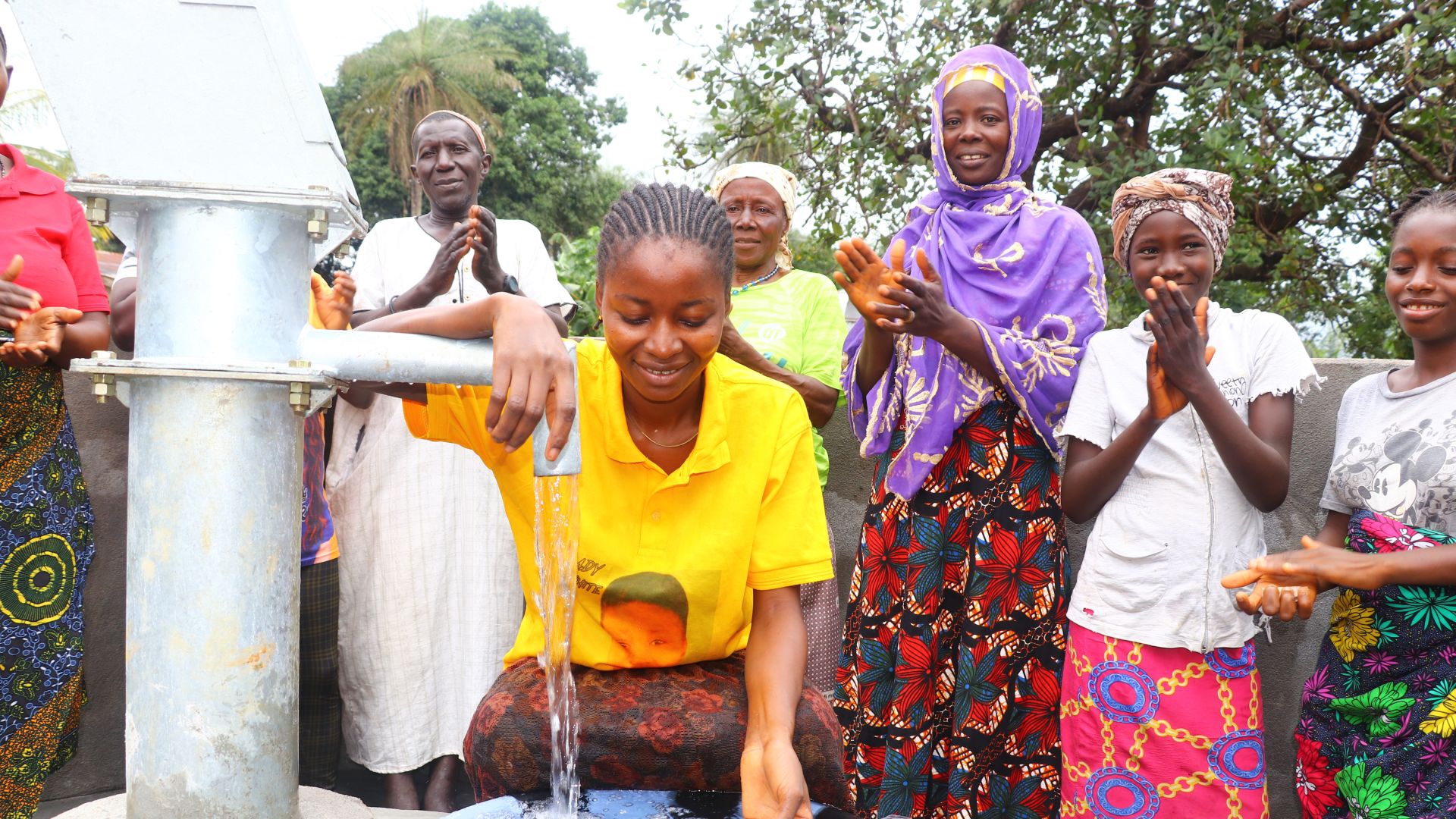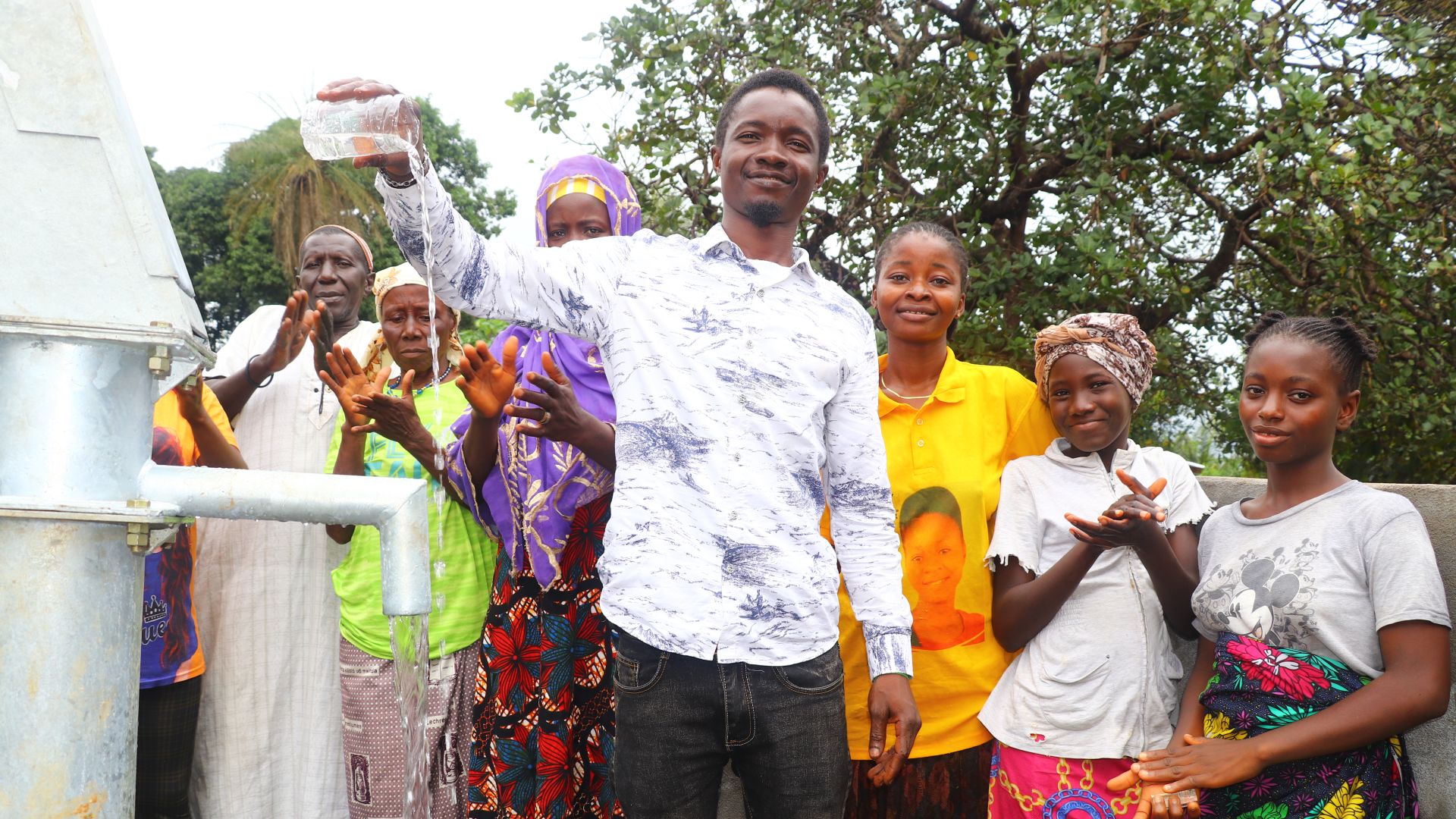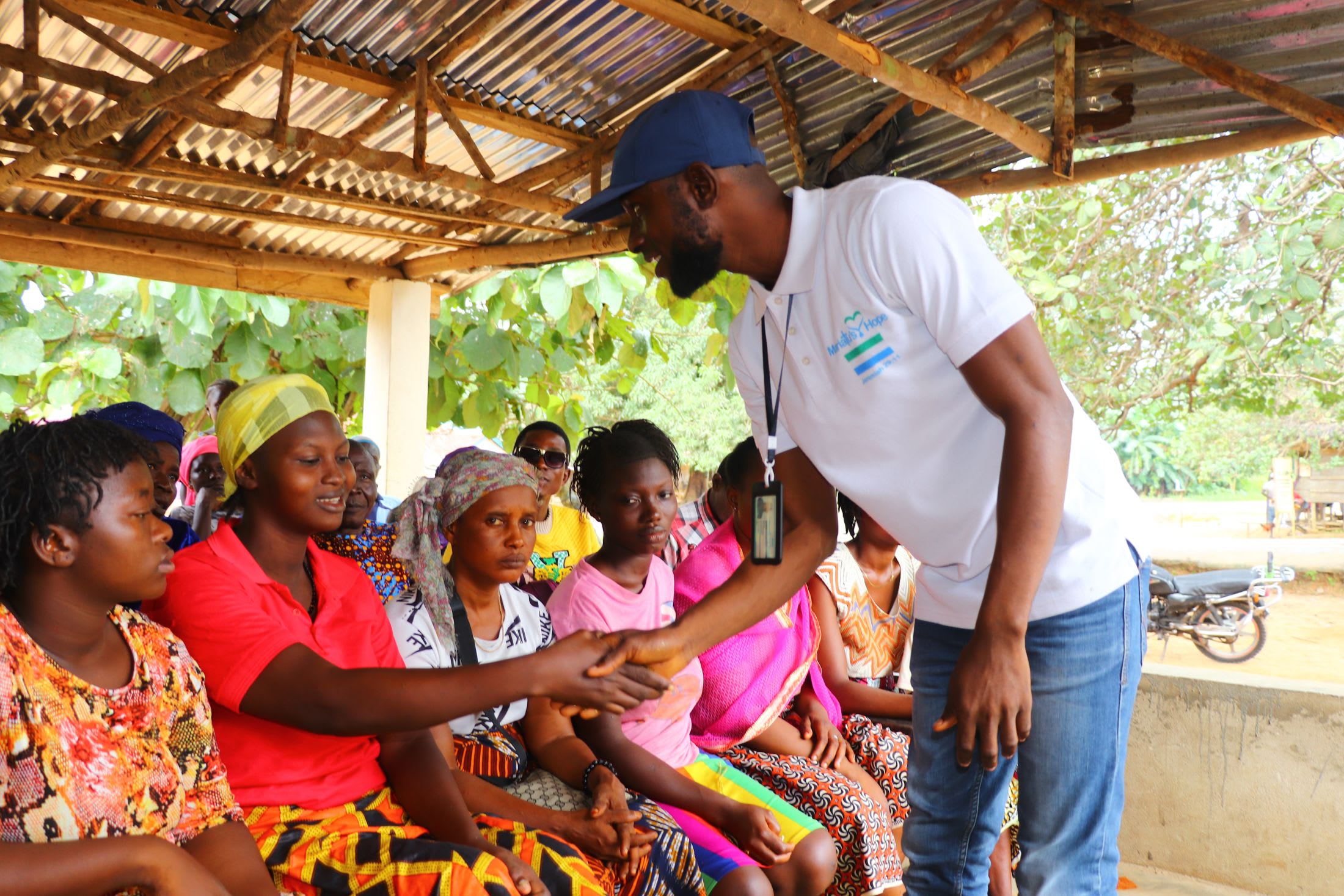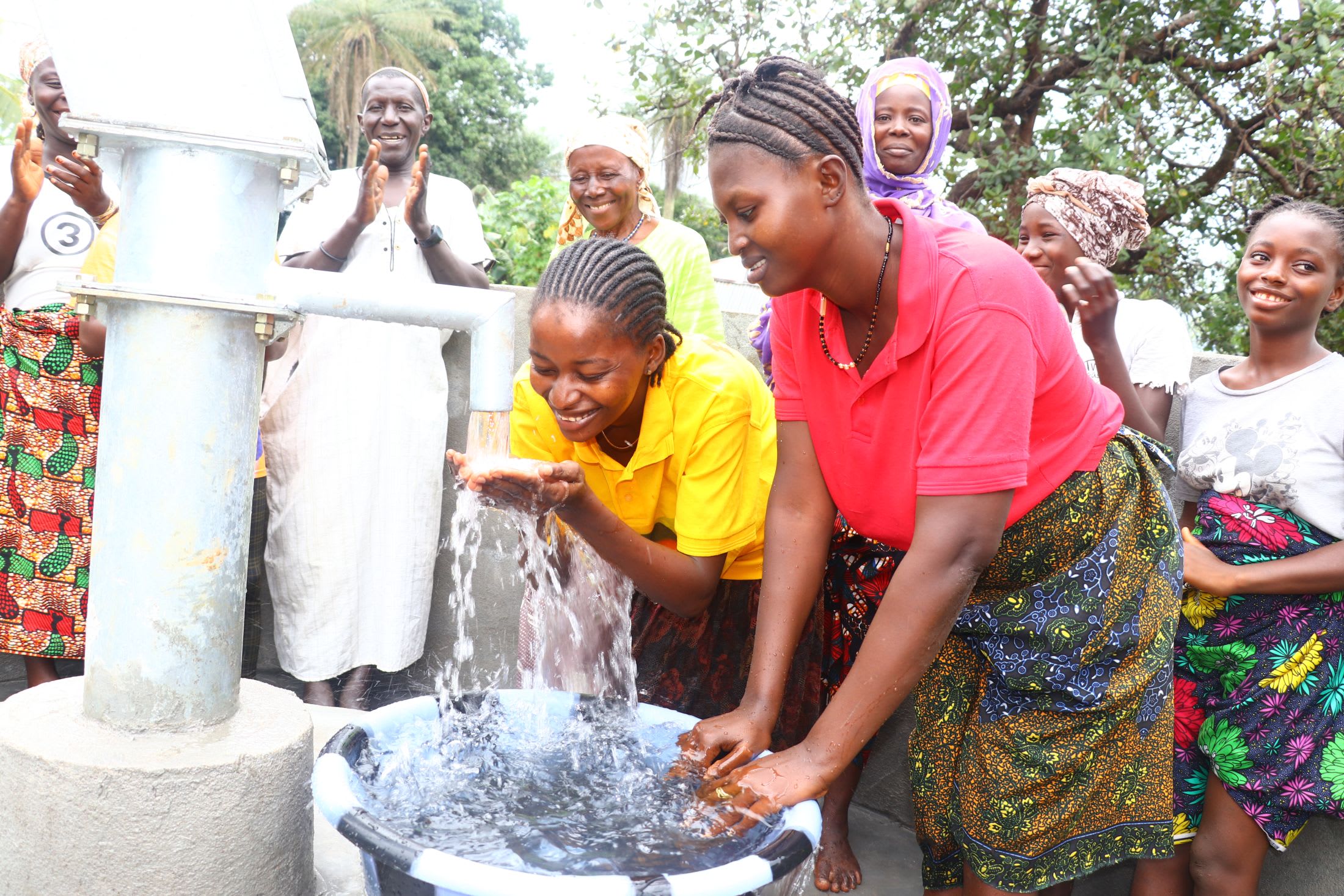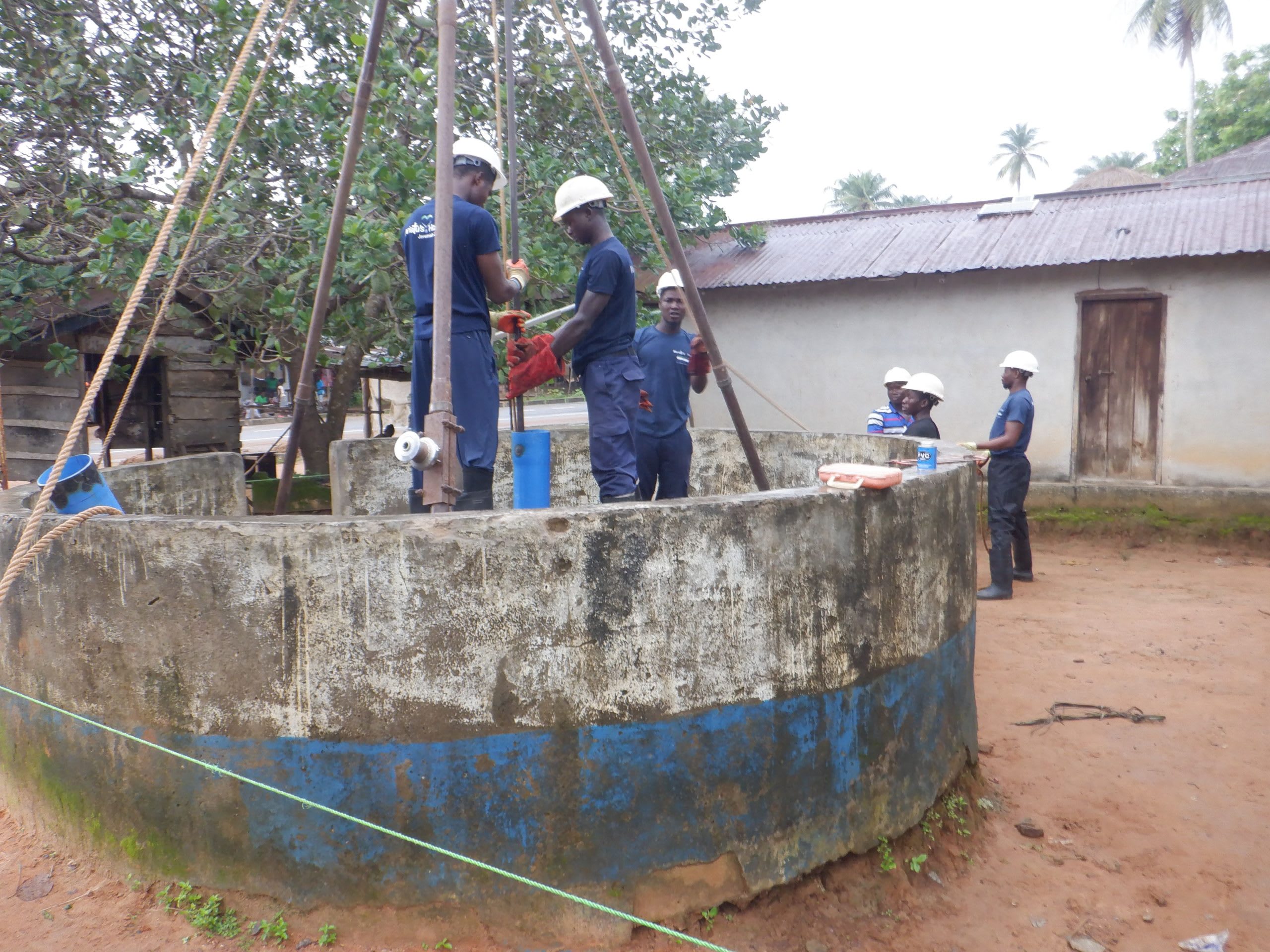The 150 people of the Bundulai Community struggle to access sufficient water. Their protected dug well, once functional, has been broken down for three years. They are left with no choice but to travel to the Maternal Child Health Post (MCHP) and try to use their well, though it is extremely restricted, and they are often forced to go without any water.
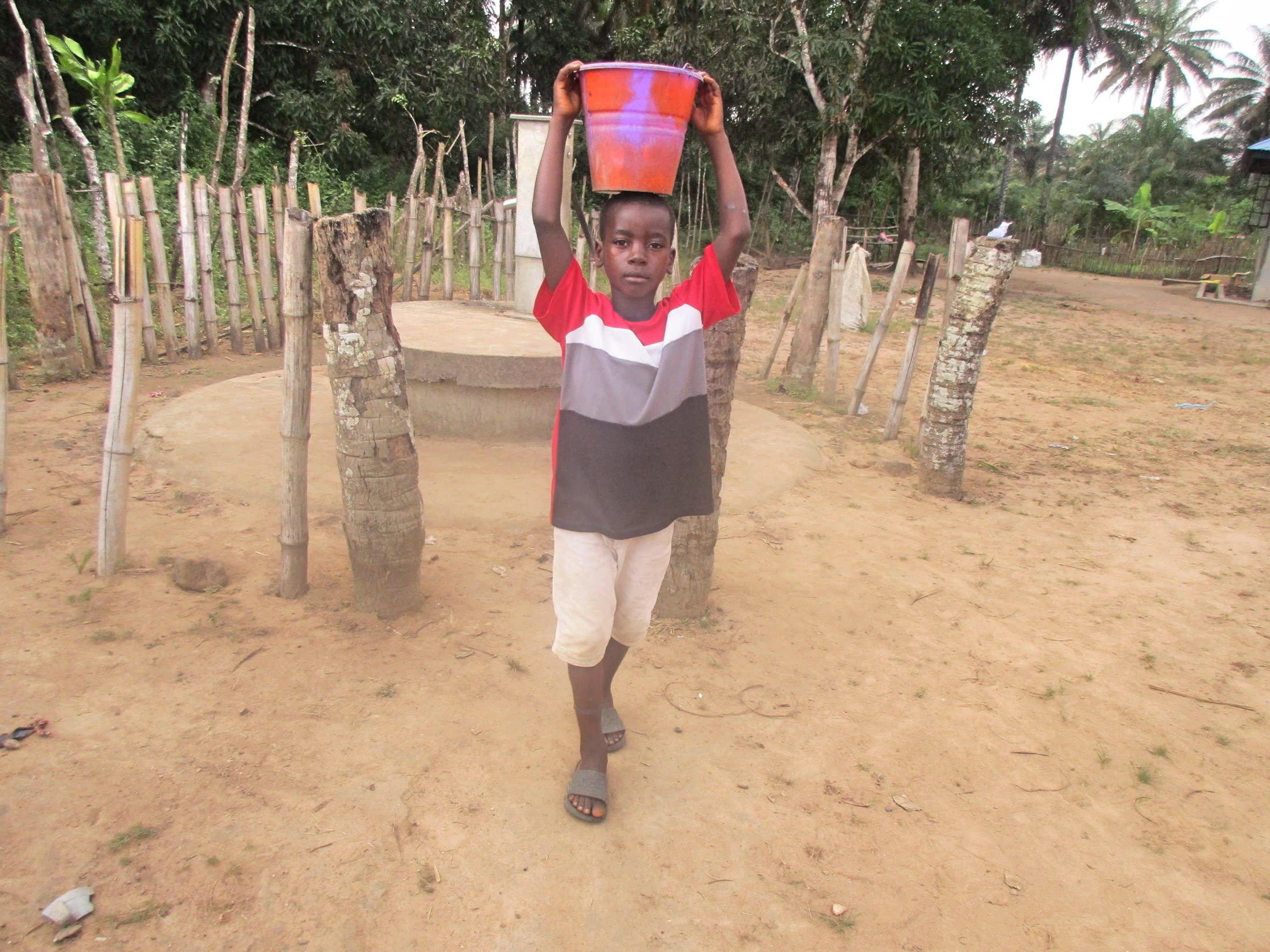
Field Officer Julius Sesay said, "The walking distance to and from the water point is also challenging for most community members, especially for pregnant women, children, and lactating mothers. They find it very hard to do a lot of trips a day due to the distance. This will also affect them since the water they had fetched will not even be enough to serve the day's work."
"Another challenge faced [by] community members is the well is not always at their disposal. The nurses open the well on their own time. I am not surprised by this since the well is meant for the smooth running of the health facility. The nurses will restrict community members from fetching water at the well," he continued.
Because of the distance to the well and the time spent waiting for a turn, women and children spend large portions of their day just trying to collect water. Many are traders (seen below) or farmers, and any time not spent in their trade is income sacrificed. Access to water is necessary for them to thrive in their livelihoods.
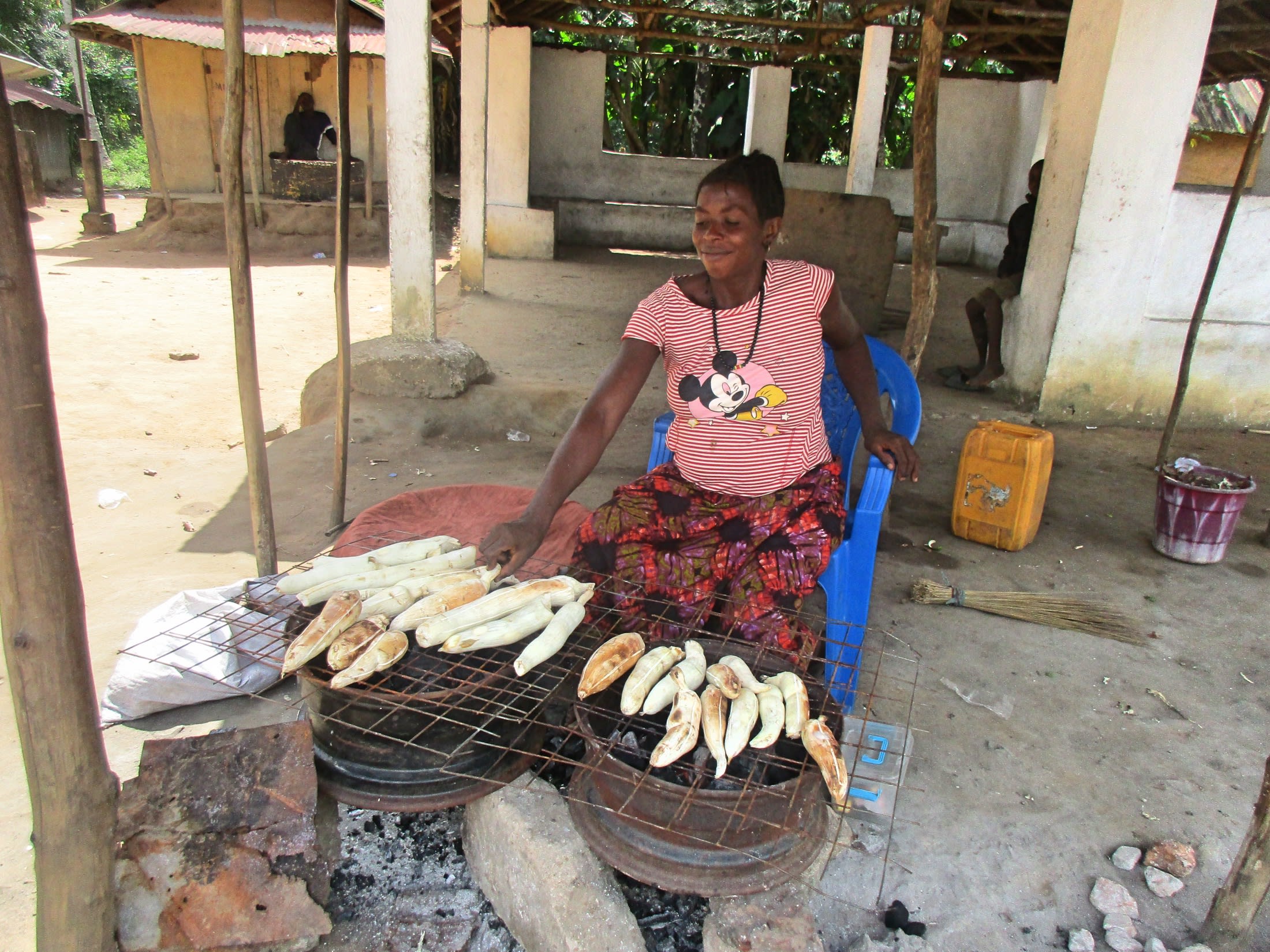
27-year-old trader Kadiatu Turay, seen below, shares her experience in the water crisis. "I sell rice and sauce to various customers every day. Doing this work requires a lot of water. The sad thing is that, ever since our main water source became faulty, I [have] faced difficulties when it comes to fetching water. Unfortunately, I [have] less water due to the high number of water users at the water point. Most times, the nurses at the MCHP will close the well since they cannot handle the crowd. The best they can do is to close the water point."

"Even though I plead with them, they will only allow me [a] few containers. The water I had fetched was not enough. Therefore, I go in search of water from other communities. This is not easy, especially when the other communities refuse to allow me to fetch water," she continued.
"Meanwhile, the trade I am doing for a living will come to a standstill. I have lost customers because of the water situation in this community. Even fetching drinking water will be difficult. Therefore, I [buy] water and plead with bike riders to fetch water from other areas," she concluded.
Children are not unaffected; they are often the ones who struggle the most. Girls, primarily, are tasked with the responsibility of providing water for their households. 15-year-old Mariama C. is sadly very acquainted with the hardship.
She said, "I am faced with the responsibility of fetching water for the entire family. I have no one to help me with this work. As a result, I wake up very early in the morning to fetch water from the well at the MCHP. Eventually, when it gets to my turn, the nurses at the MCHP will only allow me to fill the water containers I came with."
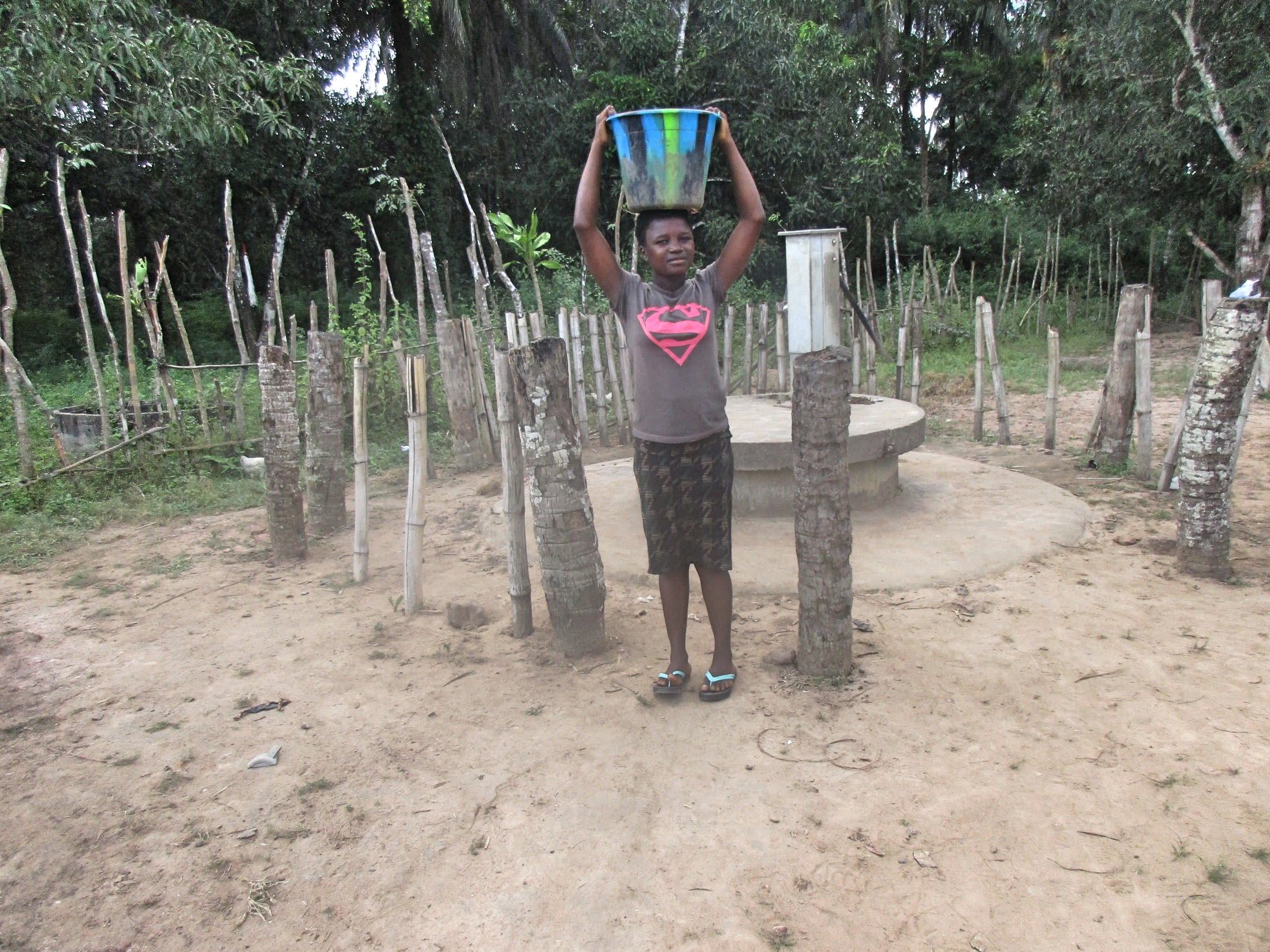
"The water I had managed to fetch will not even be enough to wash the dirty dishes at home. I will still face the responsibility of completing the work at home. This implies that I must search for water for washing the dishes and cooking. Sometimes, it will be a wasted effort since the water from the well at the MCHP changes in color. Even fetching water for laundering my uniforms will be hard. My parents will scold me if I fail to return with water. They do not want to know the constraints I face. All they want to see at home is enough water," Mariama, seen above, concluded.
Life in the Bundulai Community is unbearable for children like Mariama. When they bear such a heavy burden, there is little time for anything else—no time for education or socializing, both crucial to a child's healthy development.
This community is in dire need of a solution. Water isn't an optional part of life; without it, they won't thrive.
Rehabilitating the well gives the deserving people of the Bundulai Community a chance to improve their lives. People like Kadiatu will be able to invest in their trades and have the time and resources to provide for their families. Children like Mariama will bear a lighter load and hopefully get to dream of a brighter future.
The Proposed Solution, Determined Together...
At The Water Project, everyone has a part in conversations and solutions. We operate in transparency, believing it benefits everyone. We expect reliability from one another as well as our water solutions. Everyone involved makes this possible through hard work and dedication.
In a joint discovery process, community members determine their most advantageous water solution alongside our technical experts. Read more specifics about this solution on the What We're Building tab of this project page. Then, community members lend their support by collecting needed construction materials (sometimes for months ahead of time!), providing labor alongside our artisans, sheltering and feeding the builders, and supplying additional resources.
Water Access for Everyone
This water project is one piece in a large puzzle. In Kenya, Sierra Leone, and Uganda, we're working toward complete coverage of reliable, maintained water sources that guarantee public access now and in the future within a 30-minute round trip for each community, household, school, and health center. One day, we hope to report that this has been achieved!
Training on Health, Hygiene & More
With the community's input, we've identified topics where training will increase positive health outcomes at personal, household, and community levels. We'll coordinate with them to find the best training date. Some examples of what we train communities on are:
- Improved hygiene, health, and sanitation habits
- Safe water handling, storage & treatment
- Disease prevention and proper handwashing
- Income-generation
- Community leadership, governance, & election of a water committee
- Operation and maintenance of the water point

 Borehole Well and Hand Pump
Borehole Well and Hand Pump











